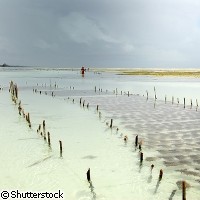EU-funded project BioMara seeks new ways to produce biofuels from algae
BioMara, a project which will investigate the potential of various forms of algae to produce biofuel, was launched on 3 April. The EUR 6 million project received EUR 4.87 million from the Interreg IVA programme, which is managed by the Special EU Programmes Body. Reducing dependence on fossil fuels and achieving a more sustainable energy mix in the EU are high on the political agenda. Indeed, the importance of producing biofuels on an industrial scale has been underscored by the European Parliament's call for 10% of road transport fuel to come from renewable sources by the year 2020. One of the primary challenges of developing sustainable biofuel production is land resource management. The potential for competition with agriculture, which in light of the world's growing population may lead to substantial increases in food prices, is a serious concern. Additionally, in light of the amount of resources required for their production, the efficiency of conventional biofuels is not optimal. According to BioMara project leader Dr Michele Stanley of the Scottish Association for Marine Science, 'with global fossil fuel supplies dwindling and atmospheric carbon dioxide levels affecting climate change, there is an urgent need for new, renewable fuel sources with low net carbon emissions [...] Conventional biofuel crops compete for land and fresh water with farming and nature. What we need is fast-growing, easily utilised plants which thrive in environments not used for agriculture or conservation.' BioMara will investigate the feasibility of using both microscopic, single-celled organisms, which produce oil directly, and seaweeds, which grow quickly and can be harvested for their biomass. 'Marine algae could be part of the solution,' said Dr Stanley. 'Seaweeds grow rapidly, harness carbon dioxide and have simple structures which make them easily [convertible] to fuel.' While there has been considerable interest in algaculture (farming algae for use as biofuel), viable methods for industrial-scale production are not yet available. Advances in this area would be welcome, as algae do not appear to affect freshwater resources, are biodegradable, and have a negligible effect if released into the environment. They can also be grown in a variety of water sources, including wastewater. However, the set-up and operational costs are at present too high for algaculture to realistically replace other commercially available fuels. 'Much research and development is needed to unleash the potential for algal biofuels,' Dr Stanley said. 'As well as seaweeds, we will investigate which strains of microalgae are most suitable for oil production and cultivation on an industrial scale. BioMara will investigate every part of the energy-supply chain, from cultivation of the algae to fuel utilisation in remote communities.' The BioMara project will focus on supporting biofuel production and utilisation in remote, rural communities. Partners include Scotland's University of Strathclyde, Belfast's Queen's University and the University of Ulster in Northern Ireland, and the Dundalk Institute of Technology and Institute of Technology, Sligo in Ireland. At the launch, Jim Mather, Scotland's Minister for Enterprise, Energy and Tourism, commented that BioMara is 'an innovative project at the cutting edge of marine renewable energy technology'. He added that the project 'provides for a pioneering, cross-border collaboration between Scottish, Irish and Northern Irish partners and represents a major addition to the significant portfolio of renewable and green energy activity already underway in Scotland.' Pat Colgan, Chief Executive of the Special EU Programmes Body, added: 'With its integrated response to the challenge of reducing CO2 emissions by developing alternative sources of energy based on marine biomass, BioMara provides an excellent example of cooperation for a sustainable cross-border region.' The Interreg IVA Programme for the period 2007 to 2013 has a budget of EUR 240 million to support cross-border territorial cooperation for Northern Ireland, the Border Region and Western Scotland in the areas of enterprise, tourism, collaboration and infrastructure. The BioMara project is also funded by Ireland's EU Structural Funds Programme for the period from 2007 to 2013, which is co-funded by the Irish government and the European Union.
Countries
Ireland, United Kingdom



